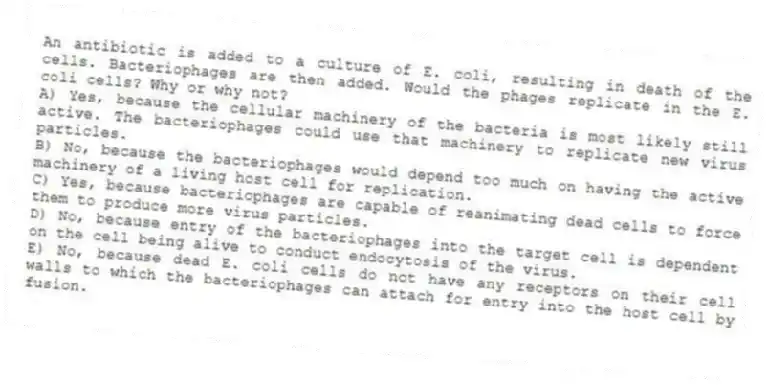
An antibiotic is added to a culture of E. coli, resulting in death of the cells. Bacteriophages are then added. Would the phages replicate in the E. coli cells? Why or why not?
A) Yes, because the cellular machinery of the bacteria is most likely still active. The bacteriophages could use that machinery to replicate new virus particles.
B) No, because the bacteriophages would depend too much on having the active machinery of a living host cell for replication.
C) Yes, because bacteriophages are capable of reanimating dead cells to force them to produce more virus particles.
D) No, because entry of the bacteriophages into the target cell is dependent on the cell being alive to conduct endocytosis of the virus.
E) No, because dead E. coli cells do not have any receptors on their cell walls to which the bacteriophages can attach for entry into the host cell by fusion.
Correct Answer:
Verified
Q109: Spongiform encephalopathy occurs in all of the
Q110: Why are viroids resistant to nucleases?
A) Having
Q111: You add an unknown phage to a
Q112: Capsids are made of a number of
Q113: Explain why HIV becomes resistant so quickly
Q115: Bacteriophages, unlike animal viruses, often have special
Q116: Why do animal viruses have envelopes and
Q117: Prions are
A) a form of RNA virus.
B)
Q118: Infective and non-infective viruses may be distinguished
Q119: All viruses must separate the nucleic acid
Unlock this Answer For Free Now!
View this answer and more for free by performing one of the following actions

Scan the QR code to install the App and get 2 free unlocks

Unlock quizzes for free by uploading documents